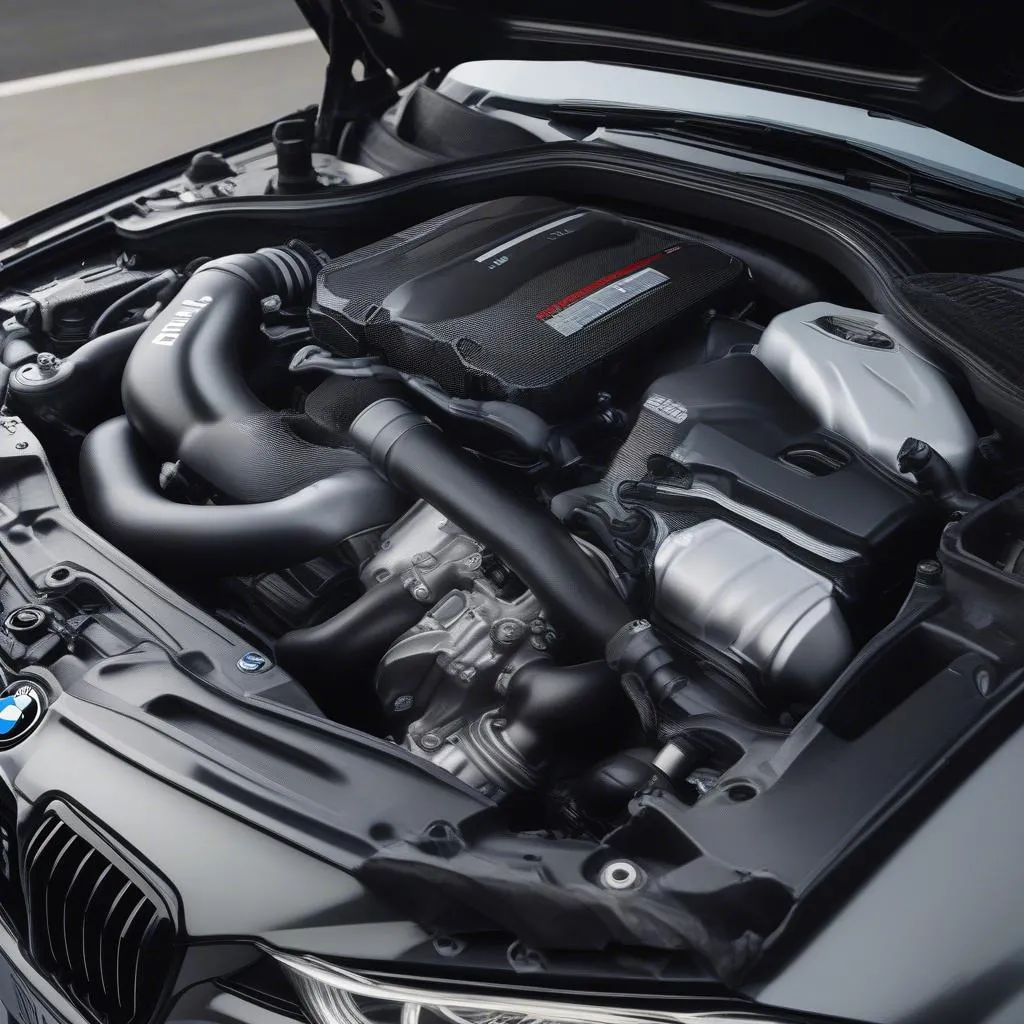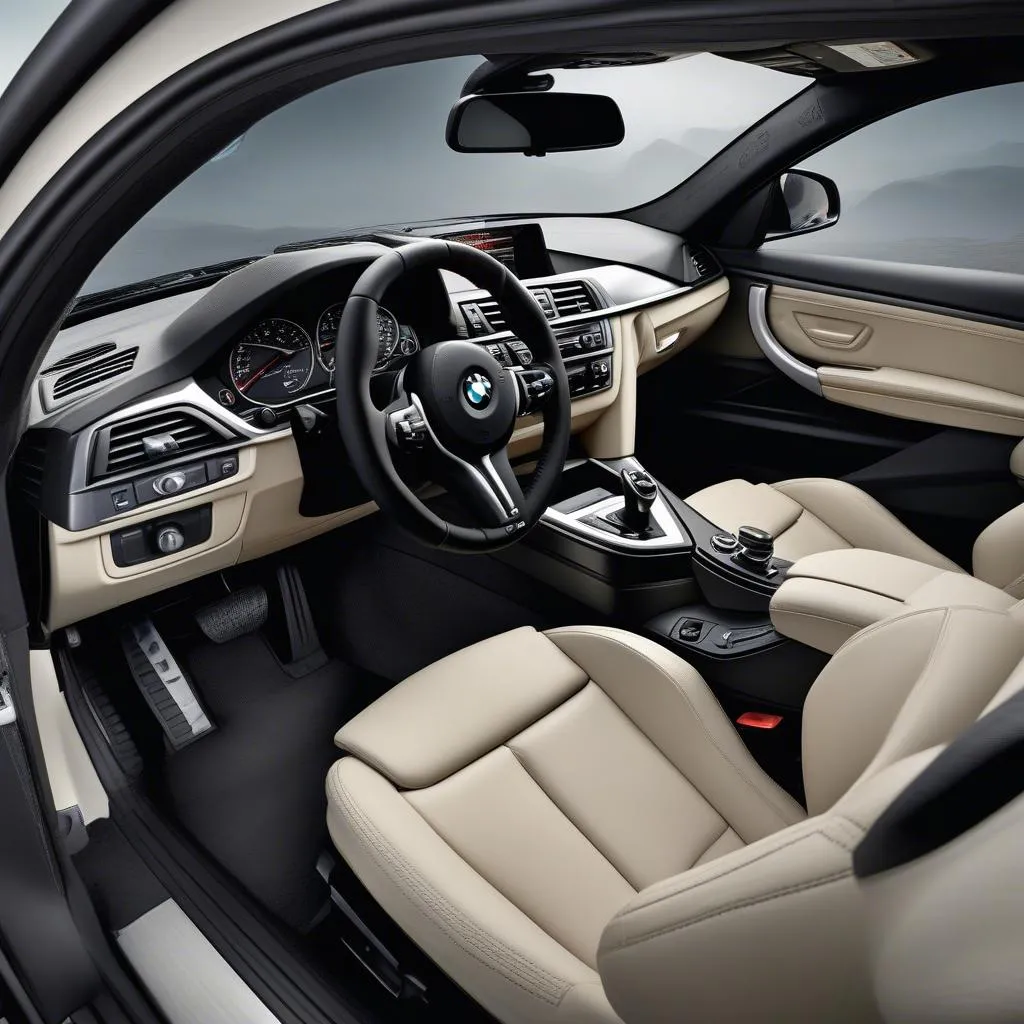BMW M3 F80 Technical Data: Everything You Need to Know
Let’s face it, the BMW M3 F80 is a beast. It’s the epitome of German engineering, a symphony of power and performance. But beneath its aggressive exterior lies a treasure trove of technical data that’s as fascinating as it is complex. Whether you’re a seasoned mechanic, an aspiring tuner, or just a curious car enthusiast, understanding the F80’s technical data can unlock a whole new level of appreciation for this legendary machine.
What Does “BMW M3 F80 Technische Daten” Mean?
“Bmw M3 F80 Technische Daten” translates to “BMW M3 F80 technical data.” It’s a phrase that encapsulates the vast array of technical specifications, performance figures, and engineering details that define this particular model of the BMW M3.
From a Mechanic’s Perspective
For a mechanic, understanding the F80’s technical data is critical for diagnosing and repairing issues. This includes everything from engine specs and transmission characteristics to electrical system diagrams and suspension configurations.
From an Automotive Engineering Standpoint
From an automotive engineering perspective, the F80’s technical data represents the culmination of years of research, development, and innovation. It showcases the cutting-edge technologies and engineering principles that drive the car’s performance and handling.
From an Economic Perspective
The F80’s technical data also holds economic significance. It influences the car’s production costs, resale value, and even insurance premiums. Understanding these factors can be valuable for both buyers and sellers.
Unraveling the Mysteries of the BMW M3 F80: A Deep Dive
Let’s dive into the heart of the F80’s technical data, exploring its key components and revealing the secrets that make this car so special.
Engine and Powertrain
The heart of the F80 is its 3.0L twin-turbocharged inline-six engine, codenamed S55. This powerhouse generates an impressive 425 horsepower and 406 lb-ft of torque in standard trim. For the F80 Competition model, power is bumped up to 450 horsepower and 443 lb-ft of torque.
Engine Specs:
- Engine: S55 3.0L Twin-turbocharged Inline-Six
- Horsepower: 425 hp (Standard), 450 hp (Competition)
- Torque: 406 lb-ft (Standard), 443 lb-ft (Competition)
- Transmission: 6-speed manual or 7-speed dual-clutch automatic (DCT)
Common Questions:
- What is the S55 engine’s compression ratio? The S55 engine features a compression ratio of 10.2:1.
- What are the typical fuel economy figures for the F80 M3? Fuel economy for the F80 M3 varies depending on the transmission and driving conditions. However, you can generally expect around 17 mpg city and 25 mpg highway.
- What is the redline for the S55 engine? The S55 engine redlines at 7,600 RPM.
Chassis and Suspension
The F80’s chassis and suspension are meticulously engineered to deliver exceptional handling and agility. This includes a double-wishbone front suspension and a multi-link rear suspension, both featuring adjustable dampers.
Suspension Specs:
- Front: Double-Wishbone with Adjustable Dampers
- Rear: Multi-link with Adjustable Dampers
Common Questions:
- What are the differences between the standard F80 M3 suspension and the Competition model’s suspension? The Competition model features a slightly stiffer suspension setup compared to the standard F80, offering even sharper handling.
- Can you adjust the ride height on the F80 M3? While the F80 M3 doesn’t offer adjustable ride height, you can install aftermarket lowering springs or coilovers to customize the car’s stance.
- Are there any known common suspension issues with the F80 M3? One common suspension issue with the F80 M3 is worn control arm bushings, which can lead to excessive noise and poor handling.
Transmission and Drivetrain
The F80 M3 offers two transmission options: a six-speed manual transmission or a seven-speed dual-clutch automatic (DCT) transmission. Both options are designed to deliver lightning-fast shifts and a truly engaging driving experience.
Transmission Specs:
- Manual: 6-speed
- DCT: 7-speed
Common Questions:
- Is the F80 M3 available with all-wheel drive? No, the F80 M3 is strictly rear-wheel drive.
- What are the main differences between the manual and DCT transmissions? The manual transmission offers a more engaging driving experience, allowing for full control over gear selection, while the DCT provides quicker and smoother shifts.
- How does the DCT transmission handle track driving? The DCT transmission excels on the track, offering incredibly fast shifts and a smooth power delivery that helps maximize lap times.
Brakes and Wheels
The F80 M3 is equipped with a high-performance braking system that can handle even the most aggressive driving. This includes large, ventilated disc brakes with Brembo calipers. The F80 M3 also features a set of lightweight, forged alloy wheels that contribute to the car’s performance and agility.
Brakes and Wheels Specs:
- Brakes: Ventilated disc brakes with Brembo calipers
- Wheels: Lightweight, forged alloy wheels
Common Questions:
- Are the F80 M3 brakes performance-oriented? The F80 M3 is equipped with a high-performance braking system that can handle high temperatures and aggressive driving, making it suitable for both street and track use.
- Are there any known issues with the F80 M3 brakes? While the F80 M3’s brakes are generally reliable, they can be prone to brake pad wear, especially during heavy track use.
Common Problems and Solutions
While the F80 M3 is renowned for its reliability, like any high-performance car, it can experience a few common issues.
- Water pump failures: The S55 engine is known for its water pump, which can fail prematurely.
- Transmission problems: Some F80 M3 owners have reported issues with the DCT transmission, including rough shifts or transmission failure.
- Electrical system glitches: The F80’s electrical system can be sensitive, leading to occasional glitches or malfunctions.
Solutions:
- Water pump: Replace the water pump with an upgraded unit or ensure regular maintenance to prevent premature failure.
- Transmission: Consult a BMW specialist or a reputable mechanic to diagnose and address transmission issues.
- Electrical system: Consider a thorough inspection of the electrical system to identify and resolve any issues.
Finding the Right Resources
If you’re looking for more in-depth information about the BMW M3 F80’s technical data, here are a few resources that can help:
- BMW Service Manuals: The official BMW service manuals are the ultimate resource for detailed technical information.
- Online forums: Automotive forums like BMWFanatics.com and M3Post.com offer a wealth of information from fellow M3 owners.
- Expert Opinions: You can also find expert opinions and insights from automotive journalists and enthusiasts online.
Ready to Unleash the Power of Your F80?
The BMW M3 F80 is a truly special car, and understanding its technical data can elevate your ownership experience. If you’re looking for help with diagnostics, repairs, or performance modifications, don’t hesitate to contact us! Our team of expert mechanics is here to assist you 24/7.
 bmw-m3-f80-engine
bmw-m3-f80-engine
 bmw-m3-f80-interior
bmw-m3-f80-interior
 bmw-m3-f80-on-track
bmw-m3-f80-on-track
Have more questions about the BMW M3 F80? Leave a comment below!
